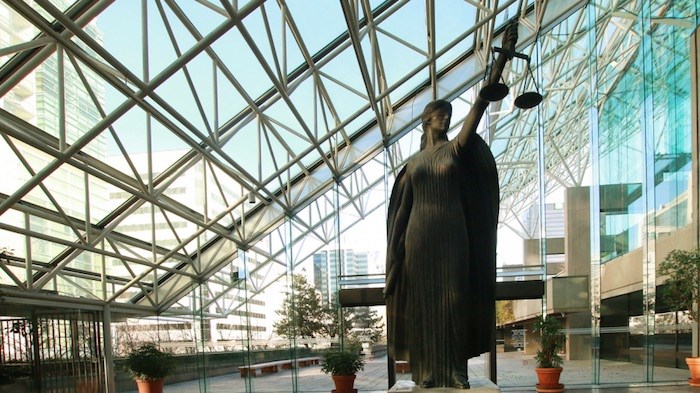An Iranian asylum seeker who recently purchased a $6.6-million home in the British Properties of West Vancouver has had his challenge to the foreign buyers tax dismissed by a B.C. Supreme Court judge.
Kourosh Esfandier Bakhtiari and Technocorp Venture Capital Inc., Bakhtiari’s company used to purchase the home on Groveland Road in 2019, claimed the tax was unconstitutional on grounds it impeded Bakhtiari’s right to liberty and economic security (under Section 7) and right to equality under the law without discrimination (under Section 15).
Within his claim, Bakhtiari claims he suffered “loss of dignity, loss of social status, psychological distress and anxiety” by having to pay the $1.32-million levy, which is 20 per cent of the home’s sale price.
In his decision posted July 24, Justice Geoffrey Gomery ultimately dismissed Bakhtiari’s claims, notably that of discrimination; however, Gomery provided Bakhtiari the right to seek leave from the court within 30 days to amend his Section 7 claim of liberty and economic security.
Bakhtiari was fighting an uphill battle, with the B.C. Court of Appeal already dismissing constitutional arguments against the tax in June 2021, after People’s Republic of China citizen Jing Li argued it was discriminatory.
The tax was imposed to curb the inflow of foreign money that has helped decouple local incomes from housing costs, particularly in metropolitan areas of B.C.
“The view that foreign nationals significantly contributed to the escalation of prices of housing in the GVRD (Greater Vancouver Regional District) is neither a stereotype nor a continuation of racist policies from the past,” ruled Justice Gregory Bowden on Oct. 25, 2019 in the Li case.
“The experts have agreed that the inflow of foreign capital has significantly contributed to price increases in the GVRD,” stated Bowden.
The government started collecting data before the tax was imposed in August 2016 on most urban areas of the province.
“The results of the first full month collection of data showed that 9.7% of residential real estate transactions in the GVRD involved foreign nationals,” Bowden noted, adding, “This represented a transactional value of $885,393,373. In the City of Vancouver the percentage was 10.9%, 17.7% in the City of Burnaby and 18.2% in the City of Richmond.”
According to Gomery’s decision, Bakhtiari came to Canada from Iran as a refugee in 1995 and has lived in British Columbia since. He is understood to have "deep ties" to the community. However, until 2022 he was unable to obtain the legal status of a permanent resident, as he claimed his application for permanent resident status was delayed or postponed by the Government of Canada, which is named as a defendant.
“Although he is an Iranian citizen, he cannot return to Iran at the risk of his life. He says that, as a practical matter, he is a stateless person,” noted Gomery.
But under B.C. law a stateless person would also constitute a foreign national, Gomery found. Regardless, Bakhtiari “is not truly a stateless person, as defined in the (United Nations) Convention,” noted Gomery.
“Mr. Bakhtiari’s definition of a stateless person is fundamentally uncertain. Even if it were well defined, the quality of being a stateless person would not be immutable, because it would depend entirely on the ever changing functional and practical implications of that person’s foreign citizenship,” stated Gomery.
Meanwhile, the Section 7 arguments were “bound to fail,” stated Gomery.
“If Mr. Bakhtiari’s argument that the [tax] interferes with his constitutionally protected liberty were accepted, the consequences would be far reaching. The argument does not engage Mr. Bakhtiari’s personal characteristics, only his liberty, or freedom of choice, and the same argument would be open to anyone. It could be advanced against any land use regulation that attaches adverse economic consequences for some purchasers of property in a given municipality or region,” the decision stated.
Furthermore, Bakhtiari’s argument that home ownership is “a crucial aspect of one’s social identity and a potent symbol of belonging and social worth” does not, in Gomery’s judgment, “establish that a person of ordinary sensibility required to pay the [tax] would suffer serious and profound psychological distress."


